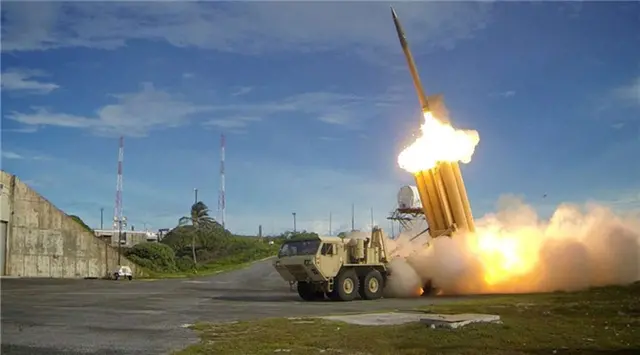Acting South Korean President Hwang Kyo-ahn said on Monday the deployment of a US anti-missile defence system can not be delayed in the face of a growing DPRK'snuclear missile threatand despite Beijing’s hostility to the move.
South Korea and the United States say the deployment of the Terminal High Altitude Area Defence (THAAD) system is designed to protect against DPRK’s nuclear and ballistic capabilities.
But China says THAAD’s powerful radar could penetrate its own territory, leading to calls from some South Korean opposition leaders to delay or cancel its deployment.
“(DPRK) has been expanding its nuclear capabilities and developing the technology to create nuclear weapons. They are also miniaturising nuclear weapons,” Hwang said.
“Right now is not the time to talk to try to resolve DPRK’s nuclear issues.”
DPRK has carried out a series of nuclear and missile tests in defiance of UN sanctions. DPRK and South Korea are technically still at war because their 1950-53 conflict ended in a truce, not a peace treaty.
Asked about China’s response to THAAD, Hwang said there were “some concerns” and that more time was needed to address these.
“The relationship between South Korea and China was not made in a day. We have engaged in diverse cooperation since the beginning of our diplomatic ties,” Hwang said.
South Korea’s finance and trade ministers have said they suspect China is taking indirect, retaliatory action against THAAD, but have not addressed the issue outright.
Acting South Korean President Hwang Kyo-ahn on Monday reconfirmed a plan to deploy an advanced US missile defence system, aimed at better coping with threats from DPRK. Photo: AP
Hwang was speaking in place of President Park Geun-hye, who has been impeached by parliament amid an influence-peddling scandal and stripped of her powers as she awaits a court decision on her fate.
South Korea and the United States announced in July last year that the deployment of the THAAD system would be completed by the end of this year.
However last week, South Korea’s Ministry of National Defence signalled there could be delays signing a contract whichwould secure the location of the missile defence system.
The THAAD system is due to be deployed on land which is now part of a golf course owned by the Lotte Group conglomerate in the Seongju region, southeast of South Korea’s capital Seoul.
Stores of Lotte Duty Free, South Korea’s largest duty free operator, are known to generate over two-thirds of total revenue from Chinese travellers. Lotte is also running department stores in China’s major cities.
The delay raised speculation that the retail giant was reluctant to go ahead with the deal because of economic retaliations against its operations in China which has strongly opposed the deployment of the US missile defence unit here.
However, the group denied such allegations, showing its intent to stick to the land exchange. Lotte International, a Lotte unit owning the golf club, plans to hold a board of directors meeting in mid-February to endorse the deal to swap the Lotte Skyhill Country Club in Seongju County.
“We’ve already agreed to the swap contract and we will abide by this, which has been always our basic stance,” said a Lotte official last week.
(REUTERS)
 简体中文
简体中文




